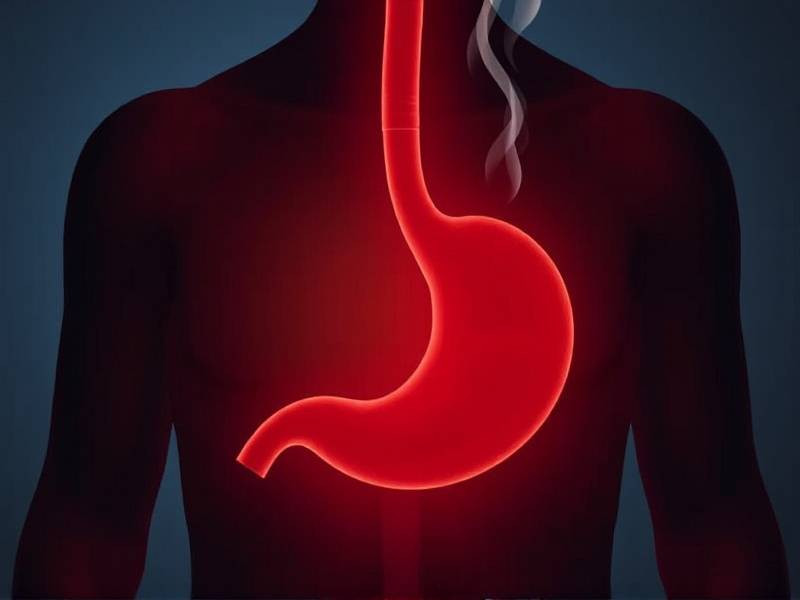Does Your Stomach Get Upset When You Quit Smoking? The Science Behind It
Navigating the Upset Stomach: The Science Behind Smoking Cessation and Digestive Discomfort
Introduction
Quitting smoking is a significant step towards improving one's health, but it's not without its challenges. One common issue that many smokers encounter is stomach upset. This article delves into the science behind this phenomenon, offering insights into why your stomach might get upset when you quit smoking.
The Role of Nicotine in Digestion
Nicotine, the primary addictive substance in tobacco, plays a crucial role in the digestive system. It affects the production of stomach acid and the movement of food through the gastrointestinal tract. When you stop smoking, these changes can lead to digestive discomfort.

Stomach Acid Imbalance
Nicotine slows down the production of stomach acid, which is essential for breaking down food and absorbing nutrients. As a result, when you quit smoking, your stomach might produce more acid than usual. This excess acid can cause heartburn, indigestion, and a general feeling of discomfort in the stomach.
Altered Gastric Motility
Nicotine also influences the movement of food through your gastrointestinal tract. This process, known as peristalsis, helps ensure that food moves smoothly from your stomach to your intestines. Without nicotine, this process may become less efficient, leading to bloating and discomfort.
Coping with Digestive Discomfort
Understanding the science behind these changes can help you manage digestive discomfort while quitting smoking.
Adopting a Healthy Diet
Eating small meals throughout the day can help reduce stomach upset. Foods rich in fiber can also aid digestion by promoting regular bowel movements.
Hydration and Relaxation
Drinking plenty of water can help prevent constipation and aid digestion. Additionally, relaxation techniques such as deep breathing or meditation may help alleviate stress-related symptoms like indigestion.
Over-the-Counter Remedies
Over-the-counter antacids or proton pump inhibitors (PPIs) may provide relief from excess stomach acid production. However, it's essential to consult with a healthcare professional before starting any new medication.
Conclusion
While an upset stomach is a common side effect of quitting smoking, understanding its underlying causes can help you navigate this challenge more effectively. By adopting healthy lifestyle habits and seeking appropriate medical advice when needed, you'll be well on your way to successfully quitting smoking and enjoying improved digestive health.

